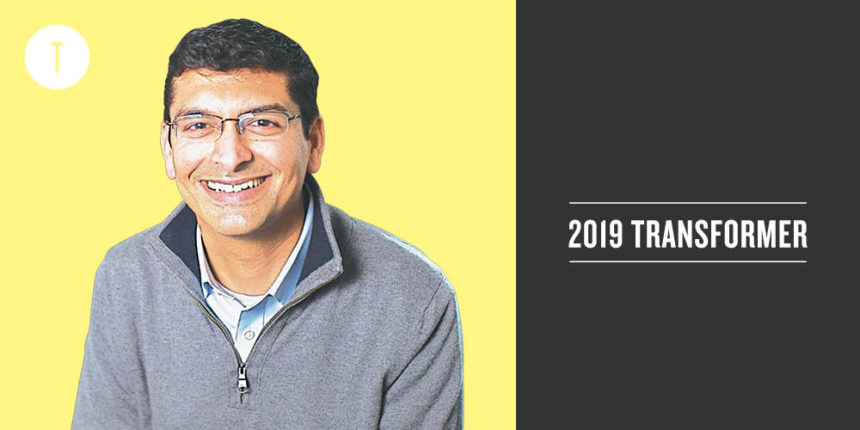Dr. Maulik Majmudar begins his MM&M profile interview with a simple observation. Nevertheless, it’s one that puts his hiring last August as Amazon’s first chief medical officer into perspective — and hints at what kind of impact the internet giant may have on healthcare.
When asked why Silicon Valley is hiring so many cardiologists, he notes, “If you look at technological innovation over the years, cardiovascular medicine — above and beyond any other specialty — has probably seen the most, spanning all the way from new devices and diagnostics to clinical trials.”
He also cites awareness that heart disease is the No. 1 killer globally as well as cardiologists’ deep familiarity with the core parameters of physiology.
Majmudar reflects on his multipart answer and grins before adding, “If you were to put that answer in front of a physician audience, every other doctor would say, ‘Wait, what do you mean we’re less versed in tech, science and physiology?’”
Yet there’s no denying that startups and large tech companies, from Apple to Verily’s parent, Alphabet, over-index on cardiologists nowadays, with many of their recruits hailing from top academic posts melding patient care with innovation.
Majmudar practiced at Boston’s Massachusetts General Hospital (MGH). He also directed its Healthcare Transformation Lab — whose mission involves researching ways to leverage tech to improve healthcare — and taught at Harvard Medical School.
A C-level role with an innovation juggernaut like Amazon is by most accounts a dream gig. Yet the decision to leave academia “wasn’t an easy one,” Majmudar says. After all, the move meant leaving an academic foothold that took years to gain. His wife was nearly nine months pregnant with twins when he accepted the job. Ultimately, the couple waited until their twins were born the following month and moved in December — with three kids below the age of 3 in tow.
The first doctor in his family, Majmudar was born and raised in India. His parents emigrated to America in 1993, settling the family in Maryland. He started as a computer science major at the University of Maryland’s College Park campus before switching to biology. He latched onto medicine after a series of formative experiences, including college stints as a trainer for Maryland’s football team and as a paramedic.
After graduating college, Majmudar embedded for a year in the emergency department at the Johns Hopkins Hospital, memorably depicted in the circa-2000 documentary series Hopkins 24/7. “I’m actually in one of the episodes, in the background as a student observing,” he says with a laugh.
On a macro level, MGH and Amazon are more similar than one might think, Majmudar says. Both are stacked with talent, sit at the top of their respective fields and radiate a passion for innovation. Both also are unfettered by bureaucracy — a crucial part of their organizational ethos.
However, culturally the two differ significantly in how they function, especially in terms of leadership. “Not to say anything negative about health systems in general, but the ability to really think far into the future, take bold risks and lead the way — not just incremental change but transforming the experience for a customer segment — is something I haven’t seen happen at the level it happens here at Amazon,” Majmudar explains. “Part of the reason I joined Amazon was to learn from the best in operational execution and leadership skills, and hopefully deliver products and services that impact many lives.”
Majmudar says he feels closer to the end customer now than ever before, given his employer’s obsession with prioritizing customer needs and wants. And, at least in spirit, he sees opportunity to continue the work he started in Boston, figuring out how to get people to change their behavior to form healthy habits and give up unhealthy ones. This requires removing the “customer friction,” as he puts it, that goes into making those choices.
“If we’re successful at doing that, we’re going to be very successful, period,” he says.
From the May 01, 2019 Issue of MM+M - Medical Marketing and Media







